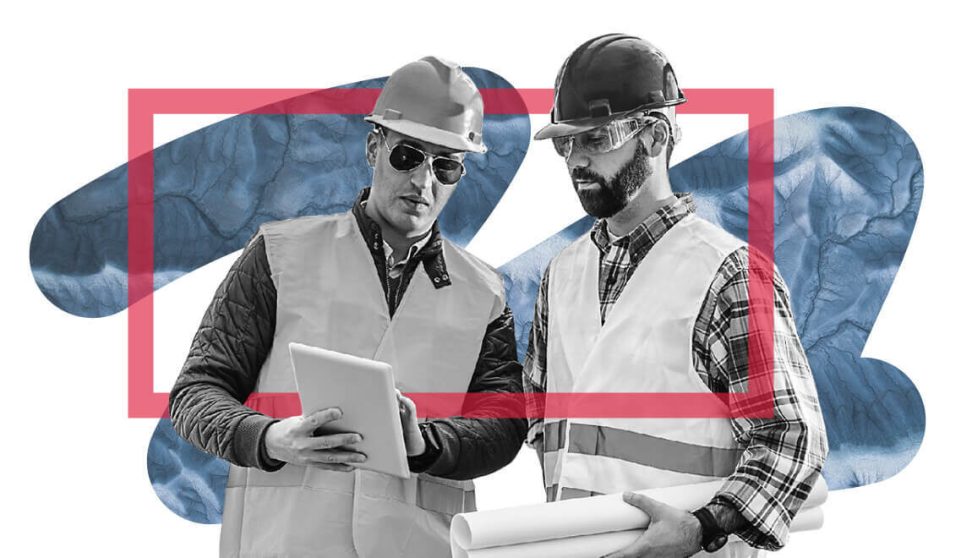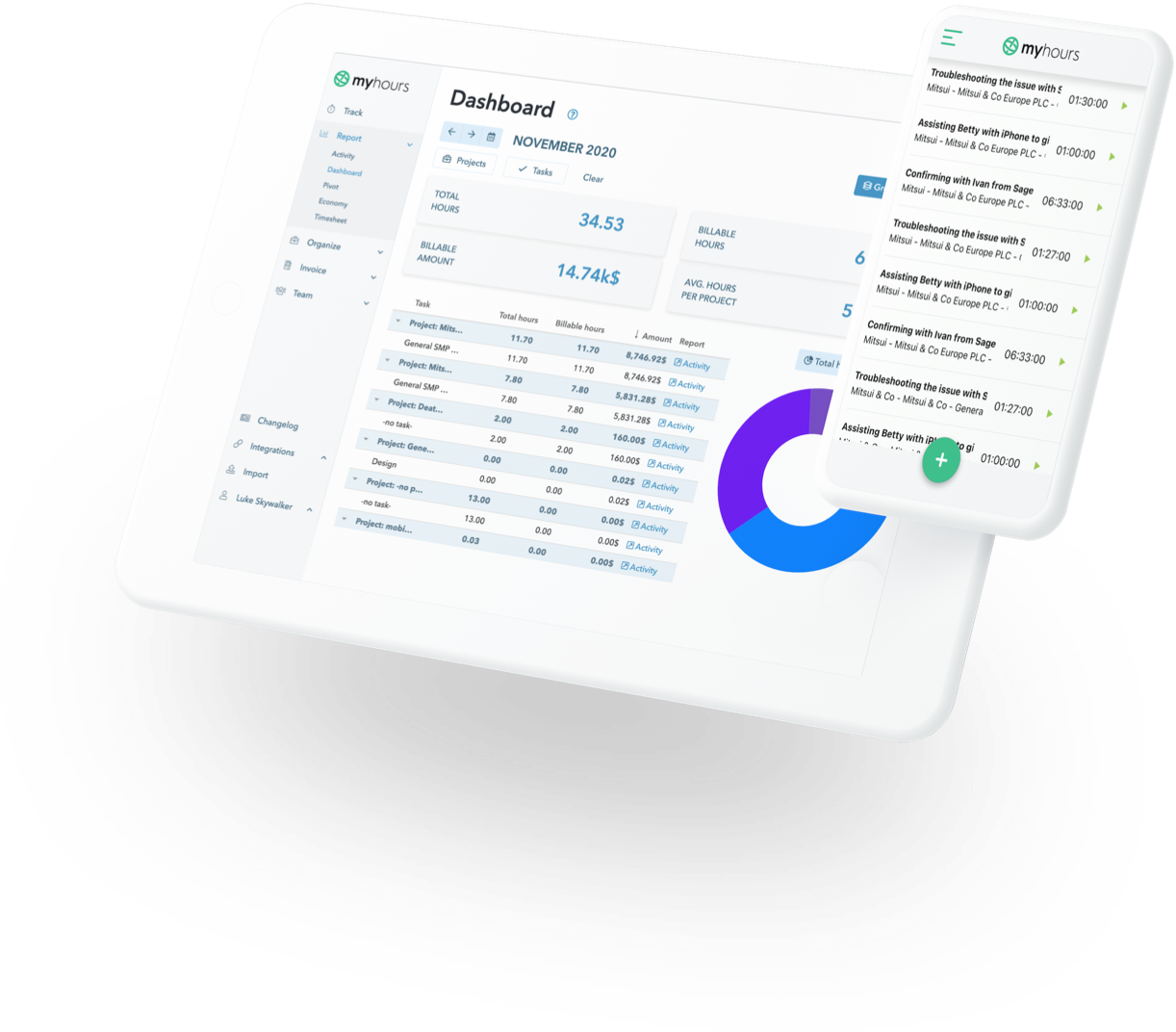How Project Managers Can Handle Remote Construction Teams

Remote work is getting more and more important. The COVID-19 crisis has shown that many jobs can be adapted to remote work, but how will the construction industry handle this change?
Will project managers have a difficult time adjusting to the new reality of business?
- The Rise of Remote Management in Construction
- Remote Management Tips For Construction Project Managers
- Track employee hours in the cloud
- Use a standard communication platform
- Communicate with your team daily
- Recognize employees’ hard work and achievement
- Talk less and listen more
- Meet your team face to face
In terms of productivity and employee management, location distribution is also one of the biggest challenges for project managers.
The traditional arrangement of construction project managers driving from one construction site to another to check work progress and solve employee issues is highly inefficient, labor-intensive, and time-consuming.
The process also costs construction firms a lot of money resulting from lost productivity as well as fuel and maintenance expenses.
The construction industry has always had the reputation of being slow to adopt new technologies. Construction is one of the least digitized industries, second only to agriculture. Many technological challenges unique to the construction industry contribute to the slow pace of digitization.
The distribution of construction sites across multiple locations and industries makes the process of rolling out solutions difficult, especially for many small construction firms working as subcontractors and suppliers.
The Rise of Remote Management in Construction
However, the construction landscape has been slowly changing over the past few years. Many technological improvements such as RFID scanners, GPS trackers, 3D mapping software, and drones are now seeing widespread use on construction sites.
Along with these, the rise of the use of project management tools has also enabled project managers to perform their usual tasks even when they are far away from the construction site.
Remote management is one of the logical next steps in advancing the construction industry. As many construction projects increase in size and complexity, being able to manage personnel schedules, delegate tasks, and check work progress can improve work efficiency and productivity.
The communication of back-office departments like accounting, lien management, and sales with on-field personnel is also crucial. That said, the benefits brought by remote management tools have also given rise to new challenges that project managers need to overcome.
Construction technology is to an extent uncharted territory in and many project managers may find managing the workforce from far away overwhelming.
Remote Management Tips For Construction Project Managers
The key to the advancement of the construction industry is the transition to a more digital environment. Here are some remote management tips for construction project managers that make this possible.
Track employee hours in the cloud
Punch cards, time recorders, and paper timesheets were once the standard for time tracking in many industries. Even now, many construction firms use them simply because the system has been in place for a long time.
However, this process is highly impractical, inflexible, and prone to human errors that result in payroll mistakes. It also takes a lot of time to collate data and does not prevent time theft.
Employees who use manual time tracking systems might deem it an inconvenience to punch in and out every single day. Some may also resort to buddy punching when they are running late. A few minutes here and there may not be much but it certainly adds to payroll.
By contrast, digital time tracking in the cloud lets project managers get rid of time theft, buddy punching, and other inconsistencies typical of manual time tracking. It also allows for real-time tracking and minimal maintenance, which frees up time for HR and project managers that they can use for more productive tasks.
Project managers have several digital time tracking options on the market which can make choosing quite difficult. The features to look for in a time tracking software include:
- Cloud-based time tracking - This lets users eliminate paper timesheets and track employee hours remotely.
- Real-time tracking - Project managers will know who is working on-site during work hours and see all the time logs in progress.
- Project tracking - This lets managers assign team members to projects and break down employee time logs based on tasks.
- Detailed reporting - This generates reports on time logs by project, client, or employee.
- Integrations - This allows users to push data from one software application to another for easier management.
Use a standard communication platform
Aside from time tracking, another challenge that project managers need to address is communication with construction employees who are working on the field. Effective communication is the key to any relationship, be it personal or in business.
But when team members are scattered across multiple sites, this can be a real challenge. A lack of a well-defined communication system will inevitably cause team members to reach out to one another through different channels, resulting in inefficiencies and disjointed communication.
The first step in establishing good communication is to specify which communication platform to use and to stick with it. Fortunately, there are several communication tools available to project managers that are specifically designed for construction teams.
Construction project managers need different applications to address different parts of the project management process. Here are some of them:
- Project management software - This is used to delegate tasks to team members and ensure all members are on the same page.
- Communication and conferencing software - This allows managers to bring everyone up-to-speed, check work progress in real-time, and solve job issues.
- Scheduling software - This is used to manage employee shifts and assign members when they are needed.
After acquiring the necessary tools needed for effective communication, the next step is to define the communication protocols and establish when each member of the team will be accessible and in what medium. After all, getting the right tools will not matter in the long run if they are not used consistently.
Communicate with your team daily
Another aspect of remote management that project managers need to consider is the frequency of communicating with team members. This entirely depends on your management style as well as the needs of a specific construction project.
However, a compelling argument can be made for daily communication especially in a remote team setup. Checking in with your team daily allows you to know what each team member is working on and check the progress of each task.
One more benefit of daily communication is it lets you improve your relationship with your team members. A casual conversation with some of your team members about their plans for the weekend or what they are working on at home improves team dynamics and builds rapport.
Compared to an office environment, there is no water cooler or corridor to meet colleagues at and chat. That is why project managers need to be proactive in creating opportunities to foster authentic interpersonal connections.
Recognize employees’ hard work and achievement
One of the best ways to improve employee engagement is to recognize their valuable contributions to the company. This is even more important in a remote construction team setting.
Construction work is a stressful job and employees are exposed to very real dangers on the construction site. Monetary compensation may be a good incentive to motivate employees but there are several other ways project managers can reward employees’ hard work and achievements.
Did one of your team members achieve a new milestone? Did a new hire complete training and exceed your expectations? Maybe the team has discovered a way to improve work efficiency?
Employee achievements deserve to be recognized and rewarded. Words of appreciation both in public and in private can drive employees’ enthusiasm. For exceptional achievements, annual gatherings and holiday parties are the best venues occasion to hand out awards to deserving employees.
Writing about their accomplishments in a company blog and newsletter is also another way to show that you appreciate their work.
Talk less and listen more
While the ability to communicate effectively is a great skill for a manager to have, the ability to listen is even more important in a remote team setting. As previously mentioned, many aspects of construction work are stressful, exhausting, and even dangerous.
In an environment where there’s a constant need to meet deadlines and consider budget restrictions, there will inevitably be conflicts, interpersonal issues, and lack of employee engagement. Only through listening can you identify issues and provide solutions.
A remote team setting is different from an office environment where you can gauge a person’s feelings through visual cues. Remote team members may not be as open to discussing issues at work.
That is why it is crucial that team managers are able to create an environment where they feel comfortable to talk about the work challenges they encounter. Ask the right questions and let them do the talking.
Meet your team face to face
Socialization is a huge deal in remote teams. That is why it is important that project managers stay proactive in building meaningful connections.
One of the best ways to do so is to find time to visit construction sites and meet the people you work with once or twice a year. Going out of your way to meet your team face to face will have a huge positive impact on employee morale and further boost your team rapport.
While the company may not be too keen to spend money and other resources on these visits, project managers should emphasize the benefits of these meetings for teamwork and productivity.
Getting to know team members through personal one-on-ones can give you great insights into what types of employees they are. These meetings are also great opportunities to talk about company issues and do performance reviews.
Project managers need to be ready to adapt to changes and rise to meet new challenges. We hope that these remote management tips can go a long way in helping you manage your construction teams no matter the distance.
Have we forgotten any important project management tips for construction teams? Write to us and we will add them to the list.
And don’t forget to try our time tracker - My Hours, free for the first 30 days.







